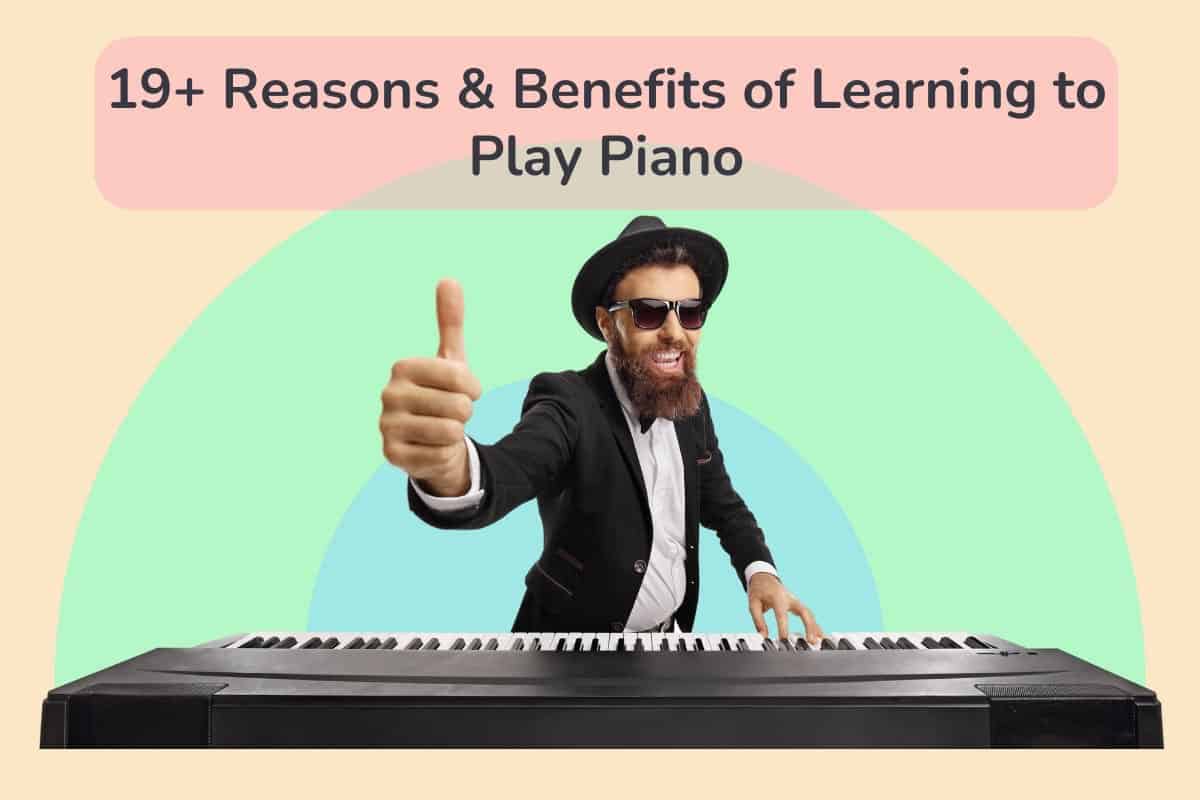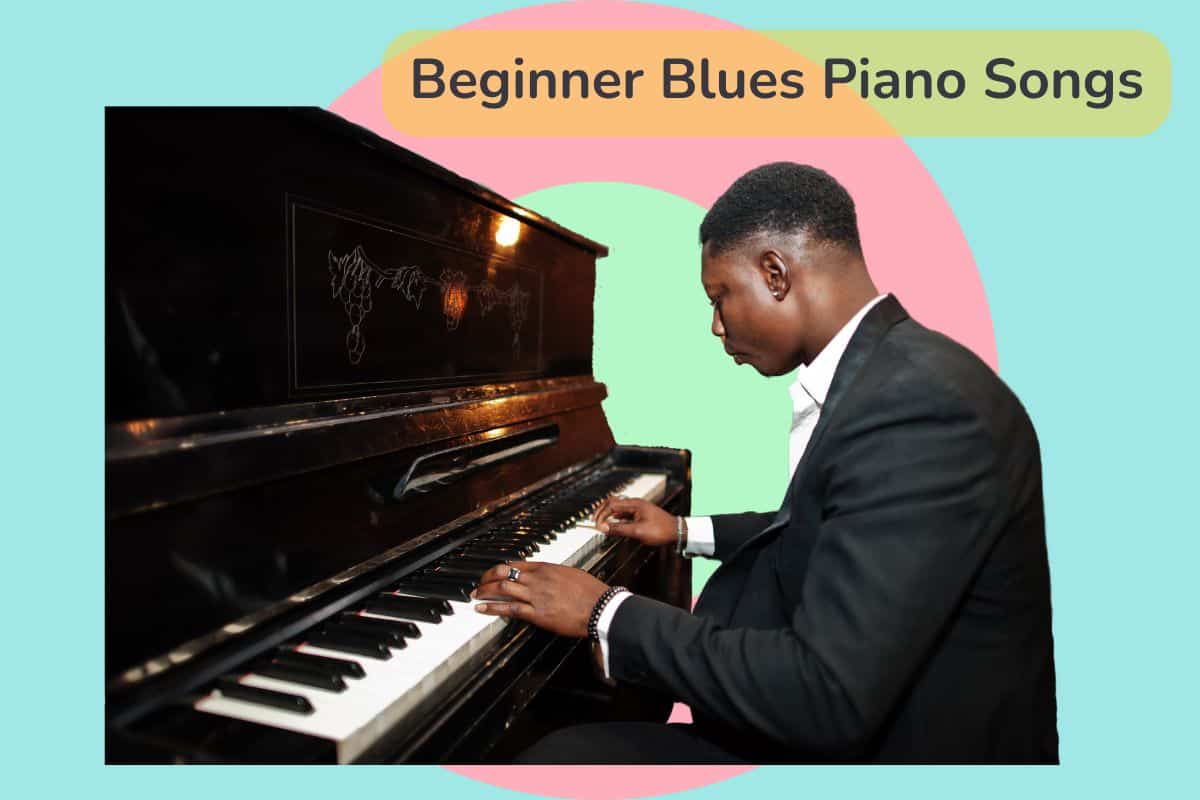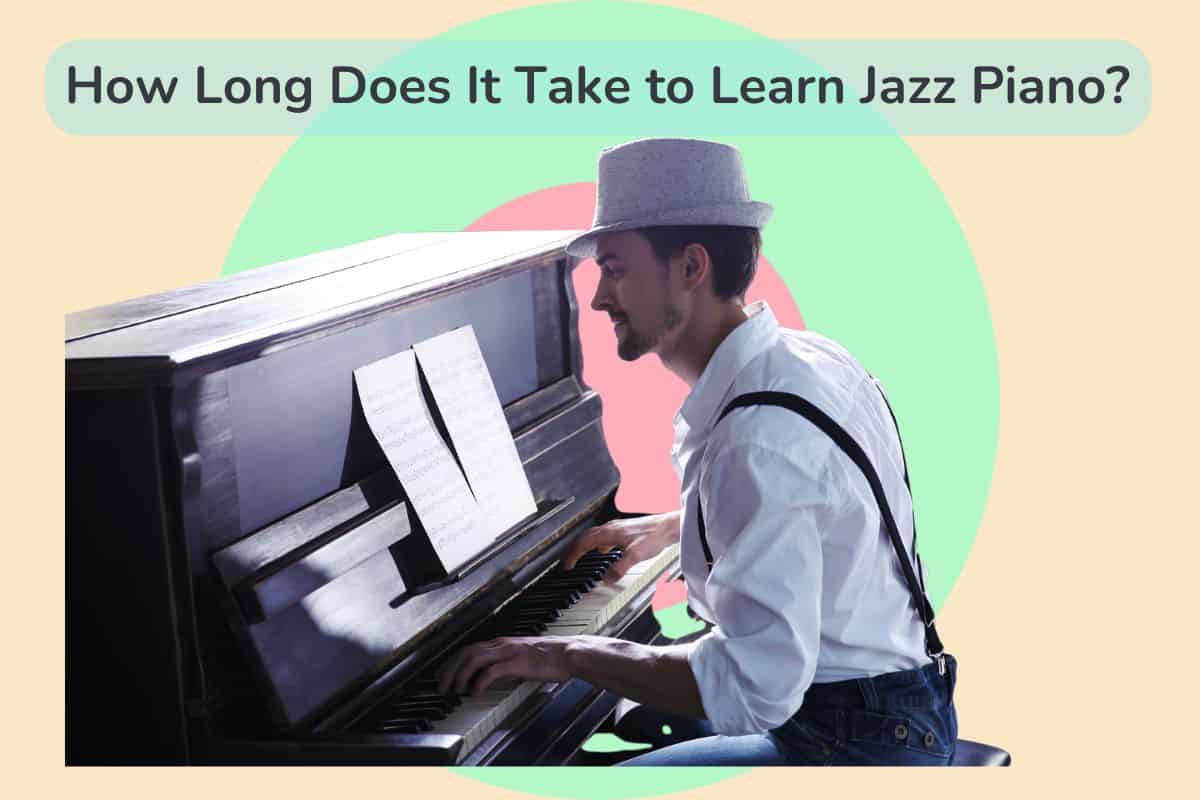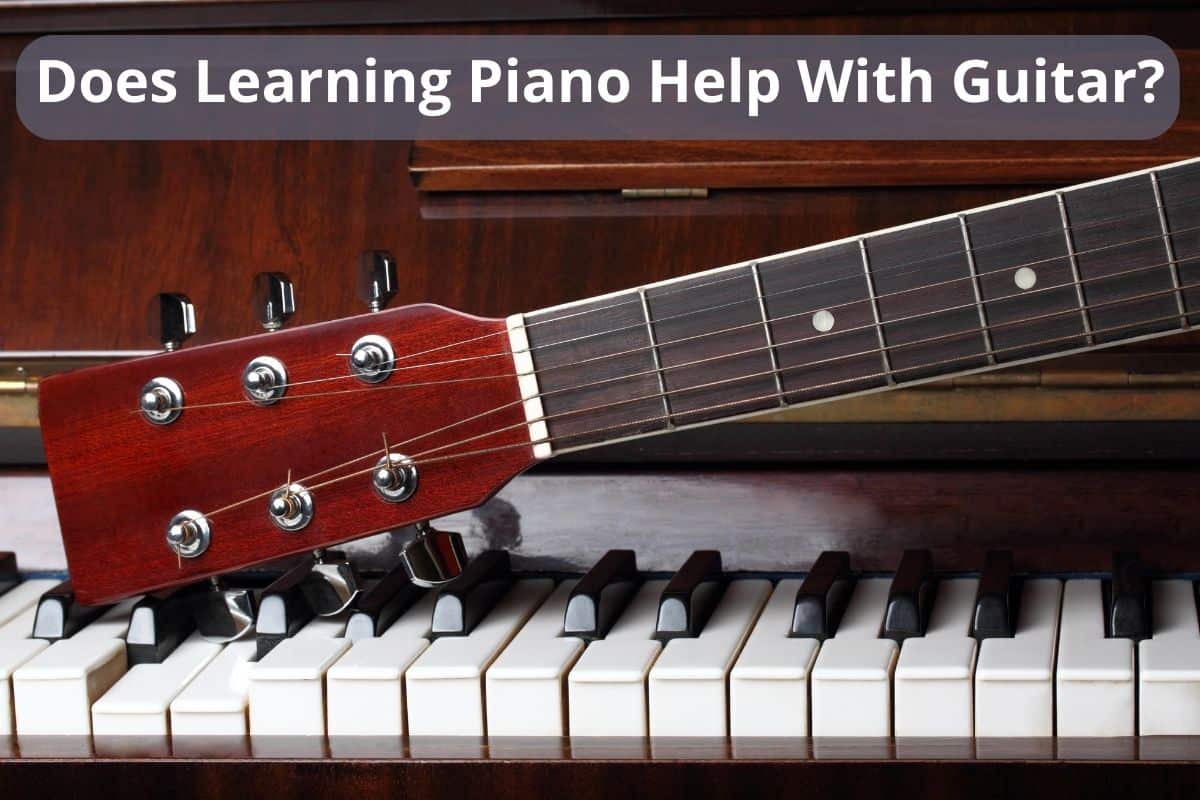Learning to play the piano has many benefits beyond simply being able to perform music. For starters, it’s a skill that can provide a lifetime of enjoyment and personal satisfaction. Whether you aim to play for your own pleasure or entertain others, the piano is an instrument that suits a wide array of musical tastes, from classical to contemporary genres.

Whether you’re considering taking up piano lessons or incorporating practice into your daily routine, this musical instrument offers a unique combination of brain benefits and personal fulfillment.
Cognitive Benefits of Playing Piano
Playing the piano isn’t just a way to create beautiful music; it’s also a highly effective exercise for your brain. As you learn and grow in your piano skills, you’ll experience a range of cognitive advantages that will benefit you in various aspects of life.
Enhancing Brain Function
When you learn piano, you’re not just working on music—you’re giving your brain a full workout. The process improves neural connections, which can lead to better brain function overall. Studies have shown that children who play piano might develop better spatial-temporal reasoning, which can aid in subjects such as mathematics.
Improving Concentration and Focus
Mastering a piece of music requires intense focus. Regular practice helps to improve your concentration levels. As you read sheet music and translate it into hand movements, you’re training your brain to maintain focus for longer periods, which can aid in learning, productivity, and time management.
Boosting Memory and Comprehension
Music education, specifically piano learning, requires you to store complex information, from musical notation to chord structures. This practice enhances your memory and learning capabilities. Older adults can specifically benefit from this as it helps combat memory loss and strengthens reading comprehension by frequently engaging the brain in learning new patterns.
Advancing Multitasking Skills
Playing the piano demands a unique form of multitasking. You must read music, coordinate your hand movements, manage pedal techniques, and maintain rhythm simultaneously. Regular engagement in this complex form of coordination advances your multitasking abilities, a skill that is transferable to other areas of life that require cognitive function.
Emotional and Psychological Advantages
Learning piano not only provides a fun hobby but also offers significant emotional and psychological benefits. From children finding a relaxing pastime to adults seeking stress relief, delving into piano lessons can lead to personal growth in many aspects of life.
Reducing Stress and Anxiety
Playing piano acts as a form of relaxation, offering an escape from daily pressures. Regular practice can lead to less stress as you focus on music, which calms your nervous system. The concentration required to learn and play pieces can serve as a meditative process, effectively reducing anxiety levels.
Fostering Self-Esteem and Confidence
Mastering a new skill like playing the piano contributes greatly to your self-esteem. With each lesson progress, you tackle new challenges and build confidence, which can even help with overcoming stage fright. Recognizing your improvement over time reinforces a positive self-image.
Encouraging Patience and Discipline
The journey of learning piano is not without its challenges. It requires patience as you learn complex harmonies and discipline to practice consistently. Developing these skills is beneficial for all areas of your life, encouraging perseverance through difficult tasks.
Cultivating Creativity and Expression
Piano playing is a dynamic method of self-expression. Whether you’re improvising or interpreting a composer’s work, you’re engaging in creative thinking. As you become more adept at understanding and playing various pieces, your ability to express yourself through music expands, enriching your creative life.
Physical Development and Health
Learning the piano isn’t just about the music; it’s an investment in your physical and mental well-being. From bolstering coordination to fending off age-related decline, the physical benefits you’ll reap are as compelling as the melodies you’ll play.
Improving Coordination and Agility
Playing the piano requires you to develop a unique level of coordination and agility. Your fingers become adept at intricate movements, each one contributing to the harmony of a piece. This fine motor skill development isn’t just useful for musicians; it’s crucial for everyone, enhancing overall dexterity and physical response time.
- For children: It lays a strong foundation for physical skills.
- For adults: It maintains and refines motor abilities.
Developing Hand-Eye Coordination
When you read sheet music and translate it into hand movements, you’re honing your hand-eye coordination. Your eyes scan ahead while your hands execute the current notes, requiring a seamless connection between vision and action.
- Direct benefits: This skill can spill over into other areas, boosting abilities in sports and everyday tasks alike.
Combatting Age-Related Physical Decline
As you grow older, your cognitive and sensory abilities often decline, but playing the piano can help slow down this process. The auditory and tactile engagement can combat the onset of dementia and age-related hearing loss, keeping your mind and senses sharp.
- HGH levels: Engaging with music can potentially elevate human growth hormone levels, which play a role in energy and cognitive function.
- For the elderly: Regular musical practice can mean aging with more grace and vitality.
Enhancing Vocal and Instrumental Skills
If you’re a singer or play another instrument, the piano can be an invaluable tool for improving your vocal and instrumental abilities. It’s fundamental in understanding music theory, which in turn informs your ability to perform and compose.
- Physical aspect: Learning piano boosts finger speed and dexterity, aiding the tactile demands of other instruments or vocal training.
- Health bonus: The act of playing itself can be a physical exercise, promoting respiratory health and muscular activity.
Cultural and Social Enrichment
Learning piano isn’t just an artistic endeavor; it’s a gateway to cultural and social experiences that broaden your horizons. Embracing the piano means you’re stepping into a world rich with history and community.
Exploring Diverse Music Genres
From the intricate melodies of classical compositions to the improvisational freedom of jazz, the piano is central to a multitude of music genres. With each genre, you gain insight into different cultural expressions and narratives. As a pianist, you’ll be able to traverse:
- Classical: Understand the precision of Bach and the expressiveness of Mozart.
- Jazz: Dive into the spontaneity of improvisation and the soulful harmonies.
- Contemporary: Play today’s hits, connecting with current musical trends.
Understanding Historical Context
The piano has been a significant presence in musical history, influencing and reflecting cultural shifts. Your knowledge of piano repertoire grants you a deeper appreciation for historic periods and the composers who shaped them:
- Baroque to Romantic: Trace the evolution of musical forms and structures.
- Modern Era: Discover how composers broke traditional boundaries, mirroring societal changes.
Connecting with the Music Community
As a piano player, you become part of a global community. Whether it’s joining an ensemble or performing solo, the piano offers you a platform for collaboration and shared experiences:
- Performing: Share your skills and passion, connecting with audiences.
- Ensembles: Collaborate with other musicians, fostering a sense of unity.
- Events: Participate in workshops, festivals, and competitions, engaging with peers and mentors.
Practical Skills and Life Lessons
Learning piano isn’t just about music; it’s a foray into essential life skills that extend far beyond the keyboard.
Developing Time Management
When you take up piano, you quickly learn the value of time management. Juggling your practice schedule with other commitments teaches you to prioritize tasks and manage your time effectively. As you progress, you’ll notice how setting aside regular time-slots for your piano lessons and practice sessions encourages a disciplined approach to using your time wisely.
Learning to Handle Criticism
Receiving feedback is a core part of learning music. You’ll encounter both praise and constructive criticism. Handling critiques with an open mind rather than defense can be tough, but it’s a skill that will greatly benefit your personal and professional life. Embrace criticism as a tool for growth and notice how it builds your resilience.
Building Perseverance Through Challenge
Mastering a complex piece or perfecting a challenging scale doesn’t happen overnight. It comes from consistent effort and perseverance. Often, you’ll hit a plateau where progress feels slow, but pushing through these periods strengthens your ability to tackle difficult tasks head-on—not just in music, but in all life’s endeavors.
Preparing for Public Performance
Performing in front of an audience can induce stage fright, but it’s also an incredible opportunity to build confidence. Conquering nerves and delivering a successful performance are monumental steps in learning the piano. Each time you step onto that stage, you’re not just showcasing your musicality, but also demonstrating a level of self-assuredness that translates to other public activities.
Frequently Asked Questions
Here are the answers to some common questions about the unique benefits of piano practice and its influence on both young and adult learners.
What are some less obvious advantages of regular piano practice?
Regular piano practice improves your memory and sharpens concentration. You might also find an increase in discipline and time management skills, as practice requires setting and sticking to schedules.
In what ways can learning piano at a young age positively affect development?
Starting piano early can enhance fine motor skills and boost auditory processing. It also contributes to better understanding of math concepts and encourages creativity and expression.
How does learning piano impact adult beginners differently than children?
Adult beginners often notice improved mental health and stress reduction. Learning piano can also offer a sense of accomplishment and provide a creative outlet that might be lacking in other areas of life.



